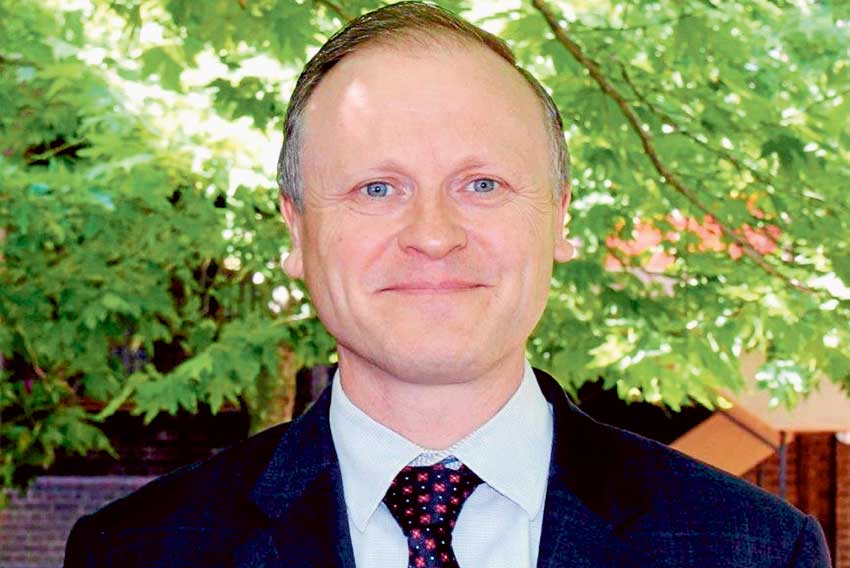
Academics say Commission misrepresents people of faith
Religious freedom experts have blasted comments by the Australian Human Rights Commission on exemptions to anti-discrimination laws, saying such remarks misrepresent people of faith and faith-based organisations amid a national discussion on the issue.
The commission is gathering responses to its paper titled Priorities for Federal Discrimination Law Reform with a 29 November deadline. It argues that “permanent exemptions have the effect of ‘freezing in time’ community standards in relation to sex, age, disability, sexual orientation and gender identity.

“Accordingly, what was appropriately exempted from the operation of discrimination law 35 years ago…may no longer be appropriate today,” it said.
Also of concern to the Church is a proposal to review current exemptions and transition some to being periodic in nature or sunsetting those considered to be “no longer required or which fail to meet community standards”.
However Professor Michael Quinlan, Dean of the University of Notre Dame’s Sydney Law School, said that the paper betrays “a fundamental misconception of religious freedom and a worldview antithetical to religion”.
“The AHRC approach assumes that because its perception of the moral zeitgeist differs from the practices of a religion, the religion – not the changing moral compass of the society – is wrong and should lose its protections to be brought into line.
“This approach misses some fundamental realities,” he said.
“For those of religious faith their faith informs their beliefs on moral questions and those beliefs are not a matter for the State to adjudicate on.
“[The comment] ignores the reality that religions take different moral positions to other people in a society – this is at the heart of why protecting religions freedom is a necessity”.
Professor of Law at UNDA Iain Benson slammed “human rights zealots [who] want to force older traditions to change”.

“Some people view human rights as a mechanism to make wholesale changes to society rather than as a general framework to protect the rights of people and associations to live together – often with their moral disagreements intact,” he said.
“Change for changes’ sake is a nonsense and the idea that state-funded bureaucrats know what’s best for millennia-old traditions they happen to dislike is an indication that, as the Canadian academic Michael Ignatieff noted, we are in the presence of ‘human rights as idolatry’ – a competing kind of religion.
“While unfair or unjust discriminations may be limited appropriately by law it is quite another thing to suggest that areas of long-standing moral disagreement may be regulated and forced to change using the vehicle of supposed human rights to do so.
“The new zealots pose a threat to genuine human rights and genuine diversity which must show more respect to religious traditions.”
Executive director of the National Catholic Education Commission Jacinta Collins said that the organisation rejects the AHRC’s characterisation of religious exemptions as “freezing in time community standards”.
“We are concerned that this language unintentionally has the effect of ‘othering’ those with religious beliefs,” she wrote in a submission to the AHRC president Professor Rosalind Croucher. “It suggests that religious believers and communities which may rely on these exemptions sit apart from society and operate outside community standards.”
The NCEC represents the country’s 1748 Catholic schools enrolling more than 764,000 students and employing more than 96,000 staff. In the absence of positive protections, the existing exemptions enable schools to operate and teach in accordance with Catholic faith, Ms Collins wrote.
“Attempts to frame balancing clauses (exemptions) as an impediment to legitimate human rights are unfair and inaccurate.”

The Australian Catholic Bishops Conference said that the commission should be careful “not to present exemptions as impediments to legitimate human rights, when the exemptions in fact recognise and balance other legitimate rights”.
Archbishop Peter A Comensoli, chair of the bishops’ commission for life, family and public engagement, wrote in the ACBC’s submission that educational institutions for example needed provision to ensure laws did not have the effect of curtailing religious freedom.
“For example, while it would be unjust in most contexts to exclude a person on the basis of their religious or ethical beliefs, it would be equally unjust to insist that a religious organisation employ a person who was opposed to its religious and ethical beliefs,” he wrote.
“The discussion paper does not acknowledge that Commonwealth law has only recognised religious liberty in exemptions to anti-discrimination legislation.”
Ms Collins said that the commission’s work on religious freedom protections and the operation of exemptions on anti-discrimination law should be delayed pending finalisation of the work by the Federal government which is preparing religious discrimination laws and the Australian Law Reform Commission.
“The NCEC is hopeful that these issues will be resolved at the federal level following the passage of the [Religious Discrimination Bill], with any outstanding issues more appropriately dealt with as part of the ALRC inquiry,” she wrote.
Related articles:
